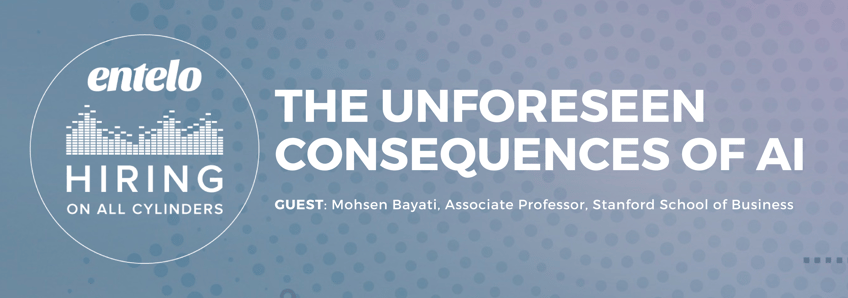
"At the end of the day, AI makes every decision we make more informative."
-Mohsen Bayati
We took a brief hiatus from Hiring on All Cylinders: Recruiting Automation Summit Edition, but now we’re back – and this time our host Sean Simerly is catching up with Stanford Professor Mohsen Bayati. The topic of conversation? Unforeseen costs of Artificial Intelligence.
Although there’s been talk and nauseam about robots replacing jobs, Mohsen dispels that theory. Instead, he talks about some of the less obvious consequences to blind adoption of AI.
One such consequence starts with our tendency to interpret AI-powered decisions as more objective than human judgement. While it’s true that social, cultural, and political forces influence our judgement, we are more likely to accept room for error and account for this in our decision-making.
By assuming AI is the true source of information, we leave no margin for error and in turn, lose our ability to be objective. Of course this has serious implications for recruiting, where an intricate balance of both objectivity and subjectivity already create a ton of gray area in decision-making. When an AI recruiting tool makes a “suggestion” for a great fit candidate, it is just that: a suggestion to be added to the totality of any situation. By using AI to inform, rather than make our decisions, we come out much farther ahead than without.
Fortunately, there are many things that both employers and candidates to eliminate the potential for bias. Listen in to the rest of our conversation with Mohsen to find out what’s been working and what hasn’t:

